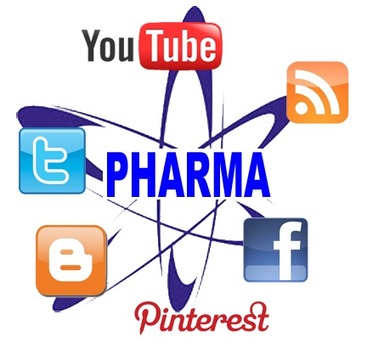Le bracelet qui transporte vos informations santé – L’Express
04/12/2014Un moteur de recherche pour trouver une officine à proximité
04/12/2014FDA and Social Media: Impact on Perscription Drug Advertising
Studies have shown that 60% of Americans turn to the internet for medical advice. It’s obvious how social media naturally seems like another method pharmaceutical companies can quickly and easily advertise to consumers. Are pharmaceutical companies alone in trying to tap into our unconscious? Would you be surprised if I told you that you could be inadvertently perpetuating such behavior?
By: Austin Chaing, MD.
The US is one of the few countries that permits direct-to-consumer advertising of pharmaceuticals. We’ve all see the ads that ramble on about all the potential risks and side effects associated with various medications. No doubt you’ve probably been bombarded with flashy sidebars on the internet promoting one medication or another — some creepily relevant to our own medical conditions. As social media became a part of life for many of us, pharmaceutical companies were quickly to exploit the medium. Platforms like Twitter are free to operate and far-reaching. Only until recently has there been a greater effort to regulate the content being disseminated to the public.
In this day and age, Big Pharma might not be quite as cavalier as you might expect. A quick search on Twitter says it all. Almost every major drug company has a verified Twitter account. While companies are generous in providing general medical knowledge or the update here or there that says the company is actively researching condition X, seldom do you find anything plugging a specific product.
Direct-to-consumer advertising on social media has revealed many challenges. Sometimes 140 characters simply isn’t enough to convey all the benefits let alone the black box warnings a drug may possess. The “Twitterverse” is an international community, and messages applicable to one population could wrongfully passed on to another. Some medications banned by one country may be promoted by individuals and corporations of another country. In fact, Glaxo Smith-Kline and AstraZeneca reportedly have disclaimers on their Facebook sites saying that information is “intended for US residents/consumers only.”
But how often are pharmaceutical companies really harping on their own products on Twitter? More likely than not, individuals are weighing in with their micro-reviews on Twitter. Some would argue that these posts could impact consumers. Bad experiences often motivate people to say something. What about the positive reviews? Who is really behind the tweets gushing about Medication XYZ?
So far, individuals aren’t being held accountable for claims they make. Should the FDA as individuals to report their disclosures? Should the FDA be verifying all social media posts that mention a drug? Something tells me there no room in the FDA budget for this. Others would go as far as to argue that this violates the first amendment.
In June 2014, the FDA released suggested guidelines to regulate social media posts by drug companies. (Click on blue text for link) Essentially for every post claiming benefit of a certain medication, the FDA is demanding equal reporting of risks and a link to more information to go with it. Sounds impossible to squeeze all that into 140 characters, and perhaps it these guidelines were meant to deter drug companies from using social media altogether to promote their products.
Let’s take a step back to ask ourselves a few questions:
Do you think the FDA is being fair to drug companies, or should we be hearing about the risks/benefits of toilet paper or have the nutrition facts be mandated for a tweet promoting candy bars? Do you think such regulations are resulting in adverse effects by deterring some individuals from learning about some medications? As mentioned earlier, should individuals be subjected to the same rules? Should all our tweets be regulated as potential advertisement for whichever product is mentioned?
Source: www.dailydosemd.com




